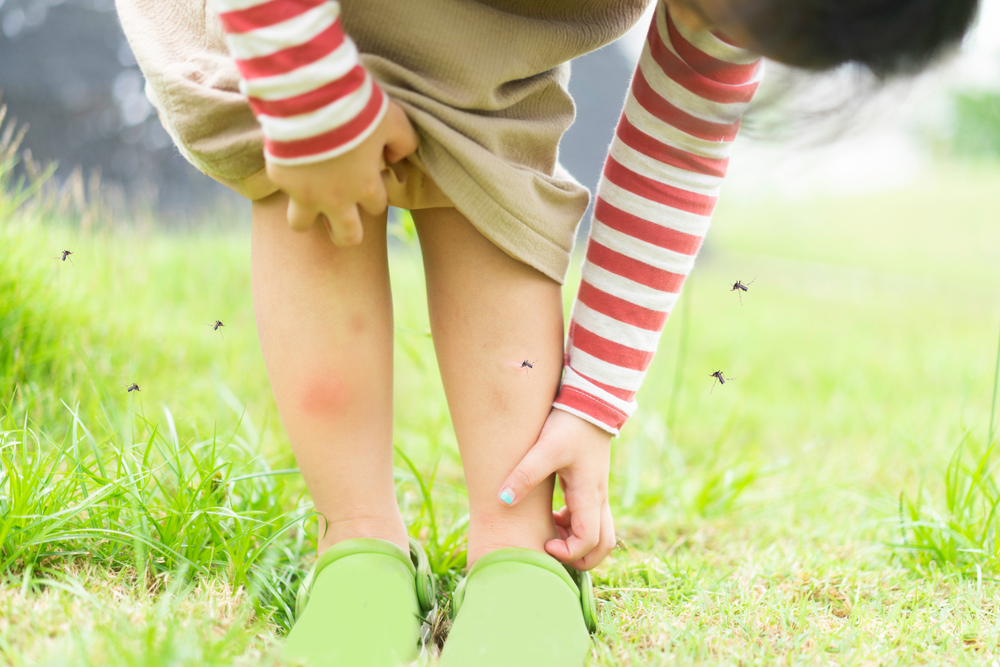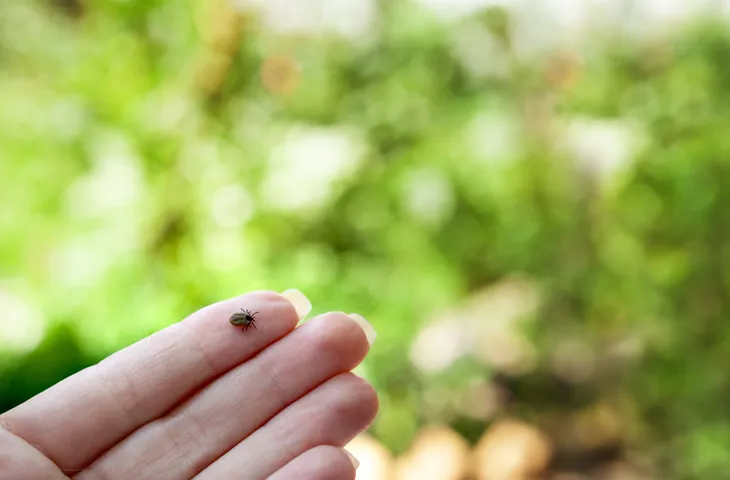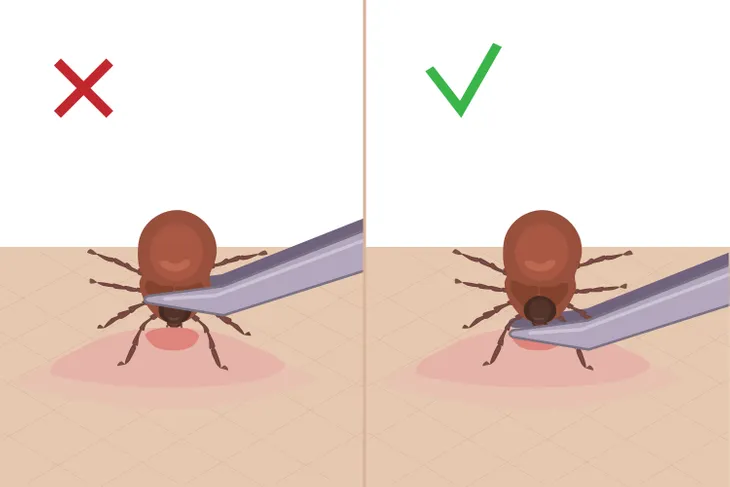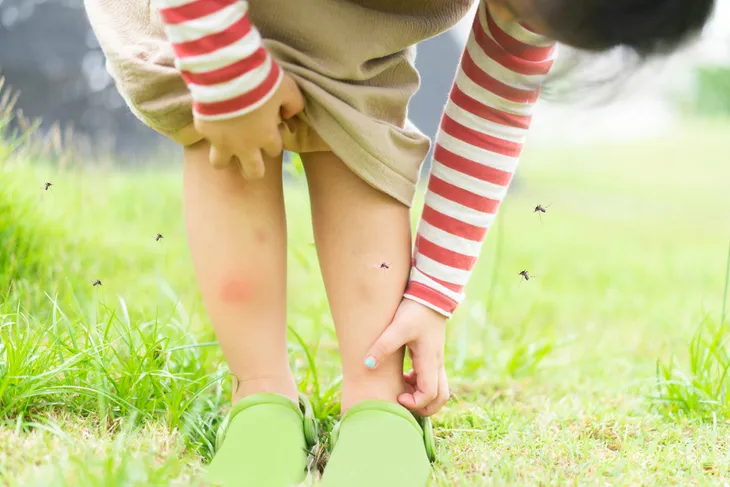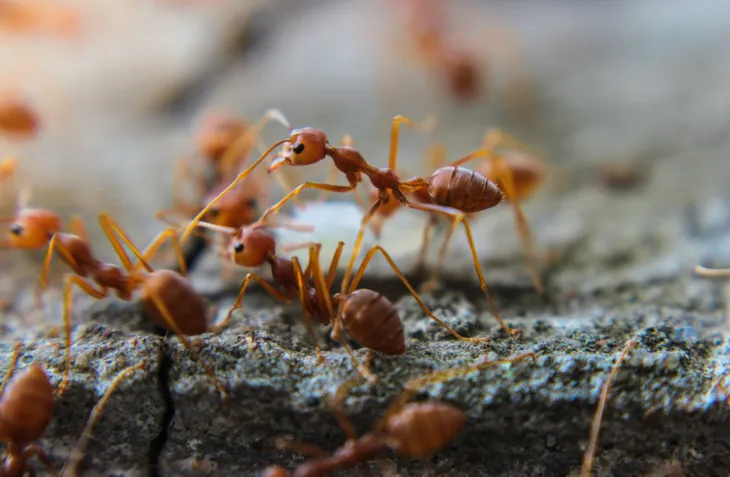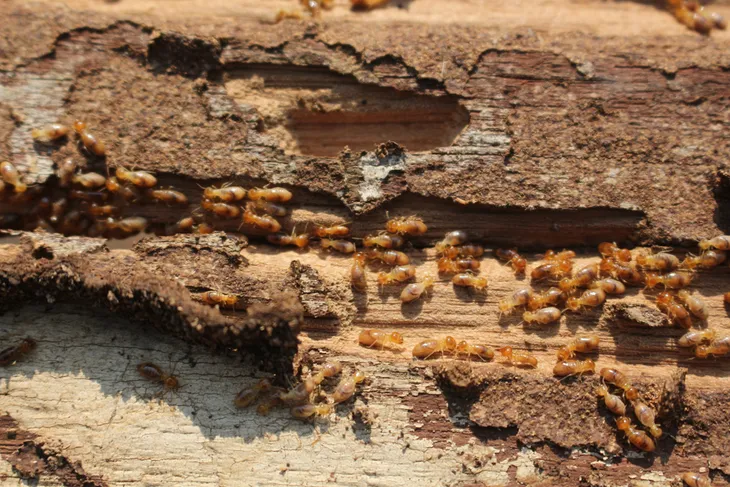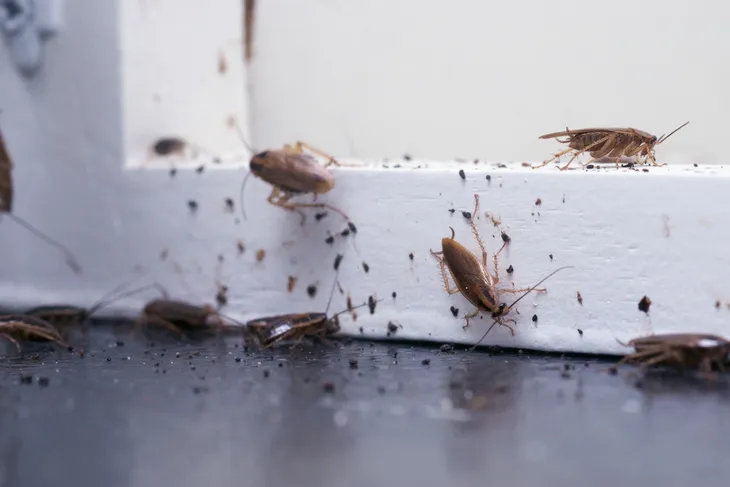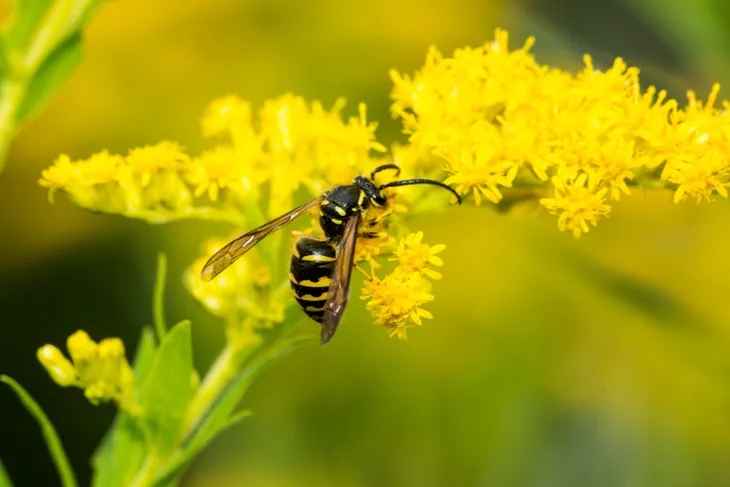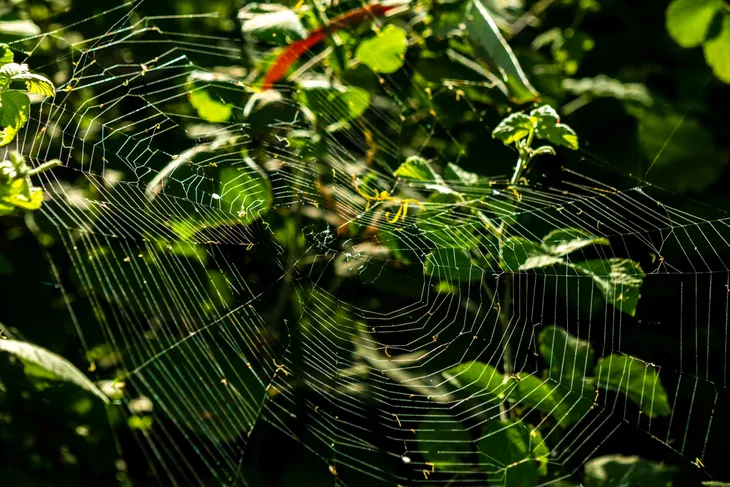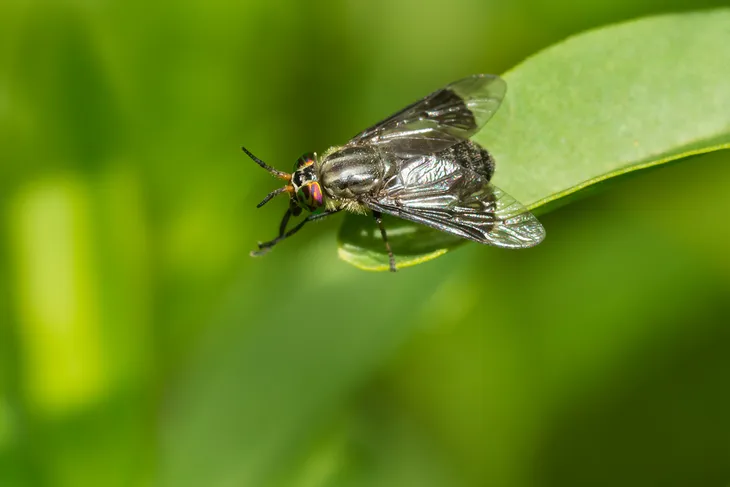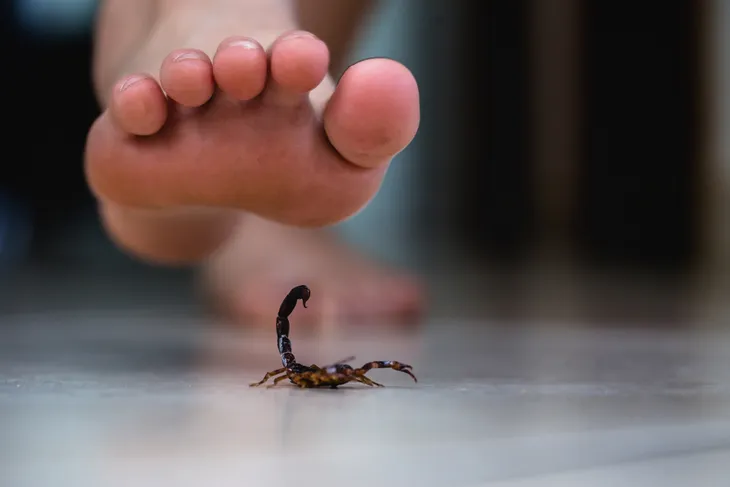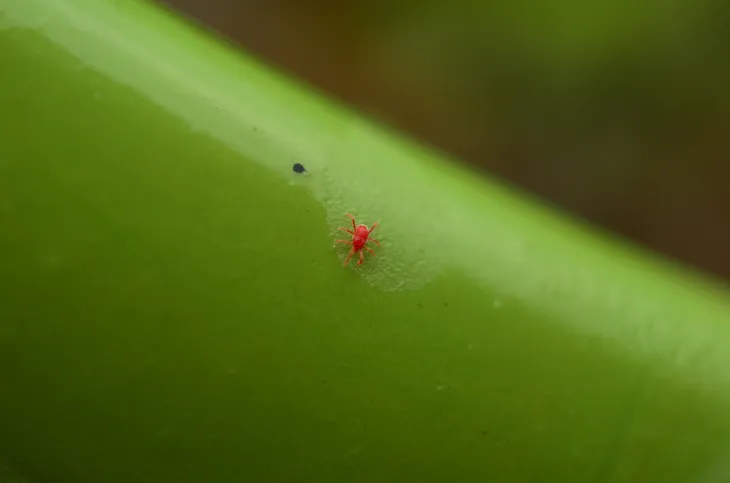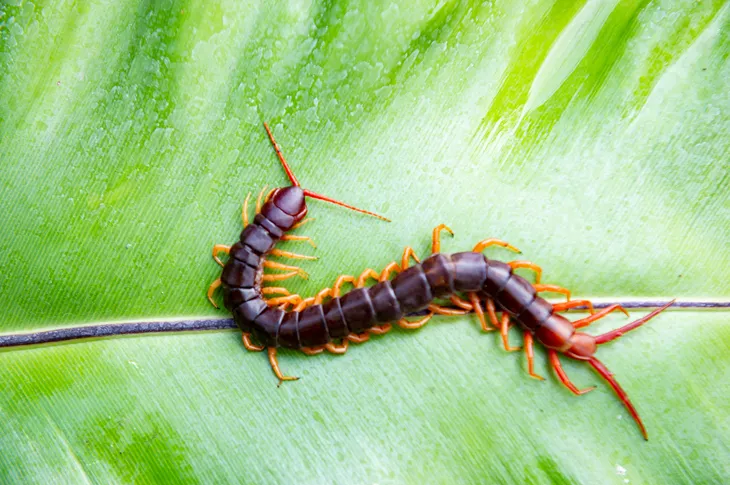The summer months are when everyone comes out of their holes, but unfortunately so does a variety of summer pests. And some you should be wary of because they can be less than willing to share space with humans (or they can see you as a meal).
While bugs play an important role in the earth’s ecosystem, you should give some of them a wide berth because they can pack a nasty sting or bite (and some carry potentially harmful bacteria). Here are 12 bugs to avoid this summer…
Deer Ticks
These little suckers will literally latch onto you for a meal and can be tough to remove. They are most common in the eastern states of the U.S. and primarily look for deer (hence the name) to feed upon. However, they occasionally end up on human hosts.
Although these bugs (they are about 0.2 inches long) with black legs and red/brown covering are small, they can cause big problems for you if they’re carrying Lyme Disease. Make sure you see a doctor if you have been bitten by a tick or are experiencing any of these Lyme disease symptoms.
How to Avoid Ticks
The best way to avoid ticks is to stay away from areas where they like to live, such as tall grass. However, it’s not always possible to avoid them, especially if you’re camping or hiking. So the next best way to protect yourself is to use a bug repellent with DEET and wear protective clothing like long pants and socks.
After spending time outdoors, check your whole body for ticks. If you find one, remove it as soon as possible. The National Library of Medicine says it takes time for an infection to reach your bloodstream – the tick has to remain latched for at least 36-hours.
The Centers for Disease Control and Prevention (CDC) says to remove a tick, use clean, fine-tipped tweezers, and grasp the tick as close to your skin’s surface as possible. Pull upward with even pressure and do not twist or jerk the tick (you don’t want the mouth to break off and remain in your skin). Once removed, thoroughly clean the bite area as well as your hands, and dispose of the live tick by putting it in alcohol, flushing it down the toilet, or putting it in a sealed bag/container.
Mosquitoes
These little buggers are known in some parts of the world as disease spreaders, but in the U.S. they’re primarily just a nuisance. They can ruin a relaxing lounge in your backyard with their buzzing and biting.
In some cases, mosquitoes can carry viruses like West Nile, which can present flu-like symptoms and can be more serious if you have pre-existing health conditions. It’s best to protect yourself with bug repellant (containing DEET) or by wearing long sleeves, notes the Centers for Disease Control and Prevention (CDC).
Fire Ants
Many of these fiery little devils have hitched a ride to the U.S. from warmer climates; they’re not all native to Canada, but they are making their way north according to Healthline.com. They have a brown/reddish color to them and their sting can feel like…well, fire.
Fire ants can be particularly aggressive when their nests (typically a mound about a foot high) are disturbed, so keep an eye on your kids when outside playing. They can latch onto skin and sting repeatedly, notes the source.
Termites
These bugs love eating wood, particularly trees and the wood in your home. That means a potentially expensive repair bill and intervention to get rid of them. They can appear soon after the winter frost disappears, when temperatures hit the 70-Fahrenheit mark.
Soldier termites are known to bite humans, and the recommended treatment is hydrocortisone cream to soothe the itching, according to Quora. However, the bigger threat is definitely to your home, not to you. So if you suspect termite damage, contact a professional pest control service.
Cockroaches
These nasty roaches can be present in your home any time of year but are at their worst during the warmer months. They can be very tough to control during an infestation. As Scientific American notes, cockroaches are “notoriously indestructible vermin that feed off hot, humid misery.”
Luckily, cooler weather can kill them off. The source notes that at 14-Fahrenheit, 50-percent of certain species of cockroaches (in this example a German Cockroach) perish within an hour. That’s not great news especially if you live in the south, but at least it tells you these roaches are not invincible.
Wasps
Slate.com points out, “They sting thousands of Americans every year, killing up to 100 people through anaphylactic shock”.
The article notes wasps are social colony insects, meaning if a nest is disturbed (even accidentally) you can end up getting stung without warning. Late summer is the height of yellow jacket wasp stings when the fertile wasps leave the nest to form their own colonies. The wasps left behind are extra vigilant because they are responsible for rearing the young, adds the source. Oh, and they love sugary hits like soda and ice cream that are popular at picnics.
Spiders
These aren’t actually bugs, but arachnids that eat bugs, so you could say they’re heroes in a way. But they’re also very creepy and unwelcome in most homes, so we call them pests and do what we can to eradicate them.
Although not based in the U.S., the Daily Mail (UK) newspaper notes that a warm summer means the number of spiders in your home during early fall can increase as males go on the search for a mate. That means mid-September into October can be the height of spiders in the home. Many spider species aren’t harmful, but some–like the black widow and brown recluse–definitely are. The CDC has a handy spider identification chart to help you determine the risk of a bite.
Deer Flies and Horse Flies
Flies are pesky bugs but deer flies and horse flies may be among the worst. Both flies bite with “scissor-like mouthparts that cut into the skin, causing blood flow which the flies lap up,” explains the Illinois Department of Public Health (IDPH). Their bites can be quite painful too.
You need to be particularly mindful of deer flies as they’re one of the few types of flies that can transmit disease to humans, known as tularemia or “rabbit fever.” While bug repellent may help prevent bites, it is less effective against some types of biting flies. Other ways you can prevent bites is by wearing heavy-duty, light-colored clothing, long-sleeve shirts, long pants, and hats. It’s also best to avoid areas where the flies are most prevalent and avoid peak biting times, the source suggests.
Scorpions
Scorpions belong to the arachnid family and are close relatives to spiders, mites, and ticks. They’re also a pest you want to watch out for this summer. Scorpions have a crab-like appearance and typically come out at night. They prefer dry climates and are found in the Southwest from New Mexico to Southern California.
The Healthy says a scorpion sting can feel similar to a honeybee sting and can cause mild swelling, a rash, or it may be more serious. To avoid scorpions, be on the lookout. They like hiding in cracks around the house and they may hide in shoes, clothing on the floor, or even in beds and furniture. To prevent stings, the source recommends keeping your clothes off the floor, placing your shoes in shoe boxes (or at the very least shaking out your shoes before you put them on), and keeping your bed pulled away from the walls and drapes.
Chiggers
Chiggers are a type of larvae that live in tall weeds, grass, berry patches, and wooded areas. Given the chance, these small red bugs will bite. They thrive in warmer temperatures which is why they can be a problem in the summer.
Chiggers often latch to thinner skin due to their small mouths. Two areas that they are particularly attracted to are the armpits and groin and since they’re so small, you might not notice they’re on your body until you develop symptoms of itchiness. To prevent chigger bites, cover your skin as much as you can when venturing outdoors and wear bug repellent. You can also prevent symptoms by taking a shower once you get home to remove any chiggers that have attached to your skin.
Centipedes and Millipedes
If you don’t like creepy crawlies, odds are you’re not a fan of centipedes or millipedes. According to The Healthy, these bugs have a worm-like body and can have up to 177 pairs of legs! While they’re not always a cause for concern, some larger centipedes can give painful bites. Millipedes, on the other hand, can release a revolting-smelling liquid that can cause skin irritation.
These bugs are attracted to moisture so do your best to avoid it in the home, especially in the basement. You may need to invest in a dehumidifier. Outside, you’ll want to remove piles of leaves and grass clippings and seal off cracks where they can enter your home.
